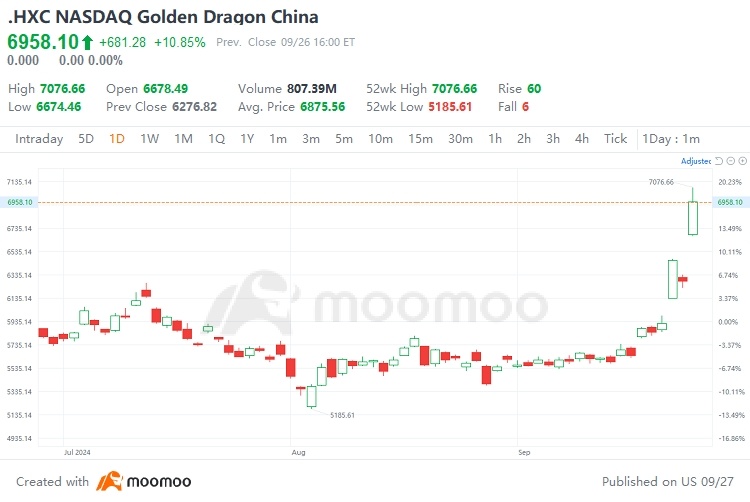Through the above policy measures, the Chinese government aims to maintain the stability of the economic fundamentals and promote sustainable economic development amid a complex and changing economic environment. Recently, as the Chinese government has frequently announced favorable policies, Chinese concept stocks have experienced significant gains. As we mentioned in our previous article, in the context of current policy benefits, investors can seize investment opportunities that benefit from the fundamentals, with a strong focus on the internet sector and undervalued state-owned enterprises, paying attention to their growth potential and improvement in shareholder returns under the new policy environment. If there are difficulties in selecting individual stocks, one can consider investing in ETFs such as the Hang Seng Tech ETF, the Bosera Central State-Owned Enterprises Dividend ETF (3437), the China Concept Internet Index ETF (KWEB), CWEB, YINN, XPP, CHAU, and others.

CFZ260803 : I am selling. Thanks!
WONG KOK YONG : Hi, May I know this Etf will expire?
152297629 : Can moomoo platform buy and sell Hong Kong stocks?
151802553 : Can this platform buy china A shares?